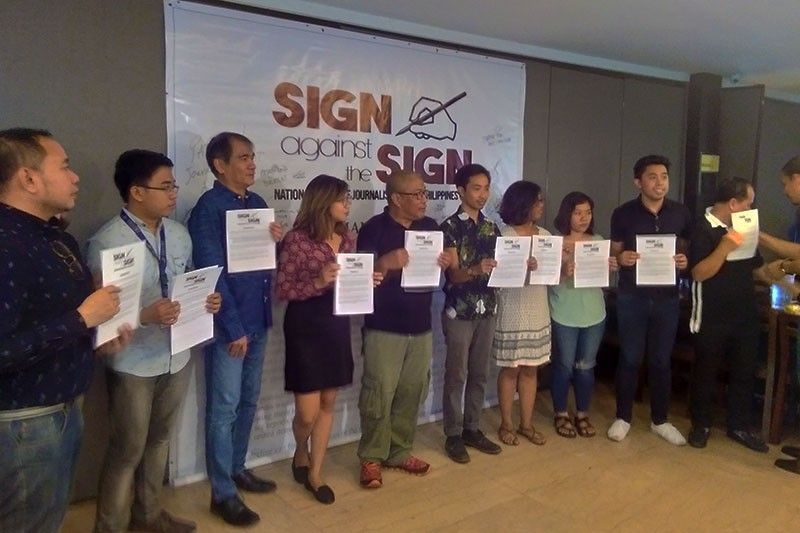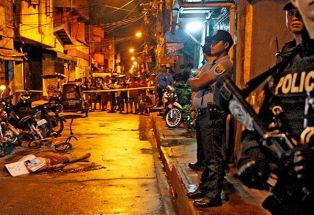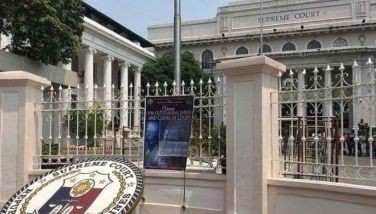Media orgs call an end to practice of including journalists as witnesses in drug ops

MANILA, Philippines — Journalists on Friday called on the Congress to repeal the law requiring members of the press to sign as witnesses in anti-drug operations as the practice puts them in danger.
The National Union of Journalists of the Philippines urged the Congress to amend the Comprehensive Dangerous Drugs Act of 2002 to remove journalists as potential witnesses to the inventory of contraband and other items seized during anti-drugs operations as it exposes media workers to harassments from crime syndicates and potential perjury.
The Comprehensive Dangerous Drugs Act of 2002 previously required a representative of the Department of Justice, the media and an elected public official as witnesses to the anti-drug operations.
The provision has since been amended by Republic Act 10640, which made witnessing optional between a representative of the National Prosecution Service and the media.
Despite this, there were reports that law enforcement units continue requiring journalists—mostly in the provinces—to sign as witnesses, often as a condition for being allowed to cover operations, NUJP Chairperson Nonoy Espina said during the launch of NUJP’s campaign “Sign Against the Sign.”
“One of our colleagues from Zamboanga del Norte has been receiving death threats from an accused drug dealer because she testified as witness in the operation. She didn’t even want her name to be revealed because of fear. This has to stop,” Espina said, adding a colleague from Visayas who regularly signed as witness to drug inventories had been included in a drug watchlist.
Espina, moreover, emphasized that the continued practice is problematic as it also exposes journalists to prosecution for perjury and other offenses in case of irregularities in operation.
Ethical question
Philippine Press Institute executive Ariel Sebellino, for his part, said that having journalists as potential witnesses in legal cases “does not only put journalists at risk but also poses an ethical question.”
He noted that journalists could be coerced into signing in order not to lose access to sources or future operations.
“To ensure that this practice is ended once and for all, we urge Congress to craft legislation or amend the existing law,” Espina said. — Gaea Katreena Cabico
- Latest
- Trending






























